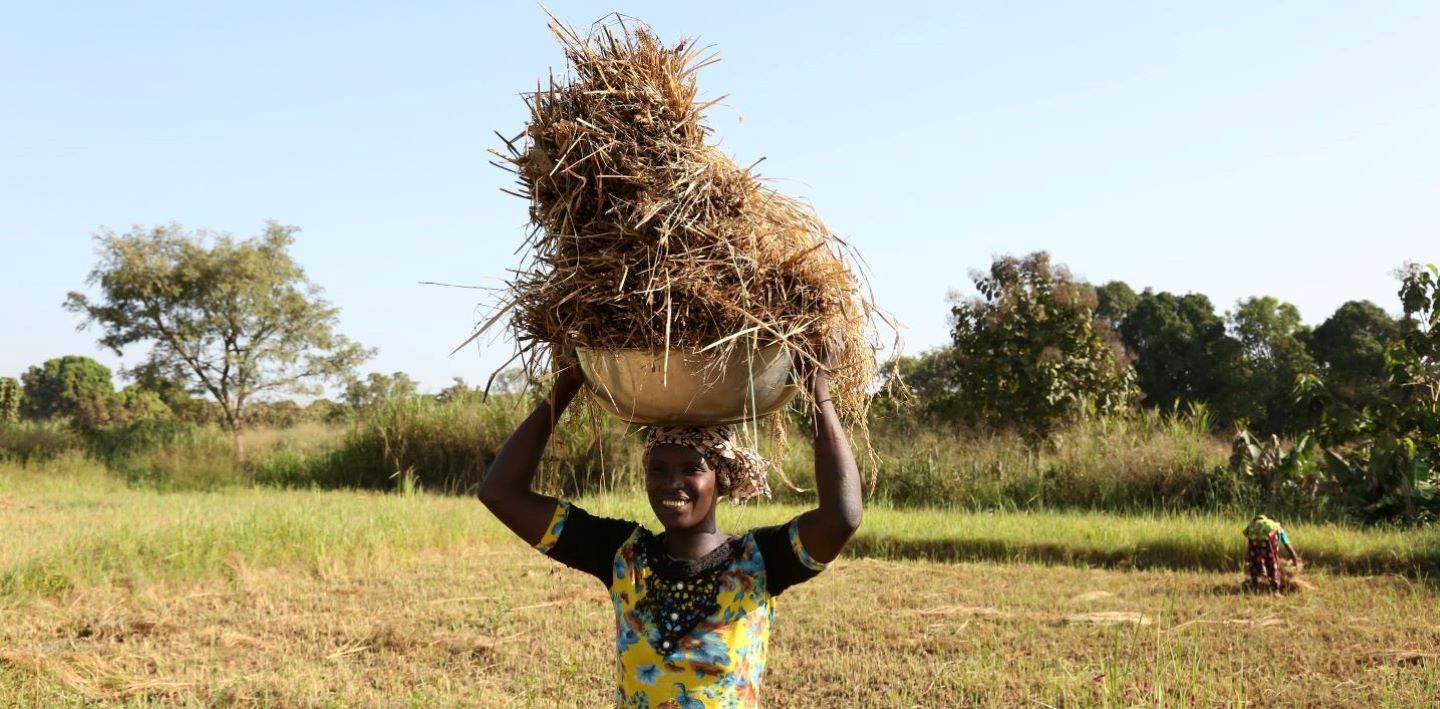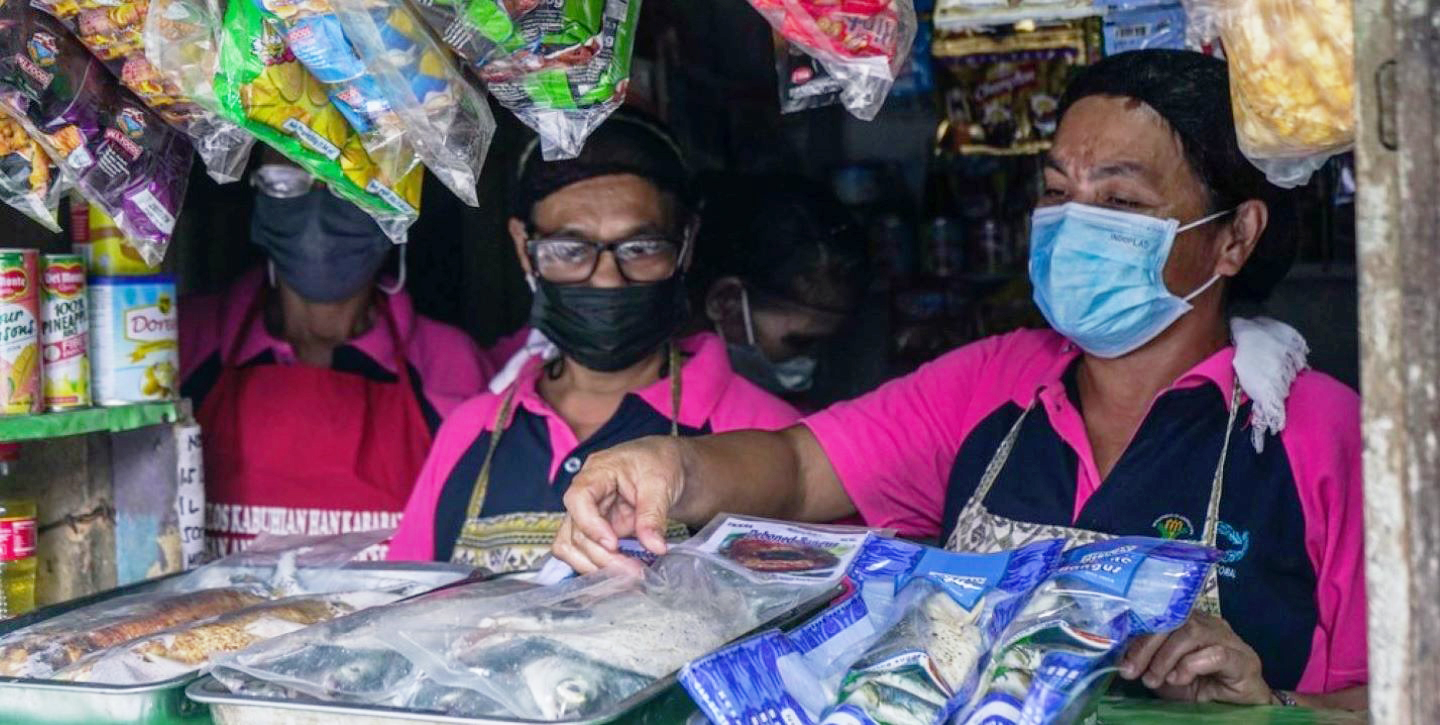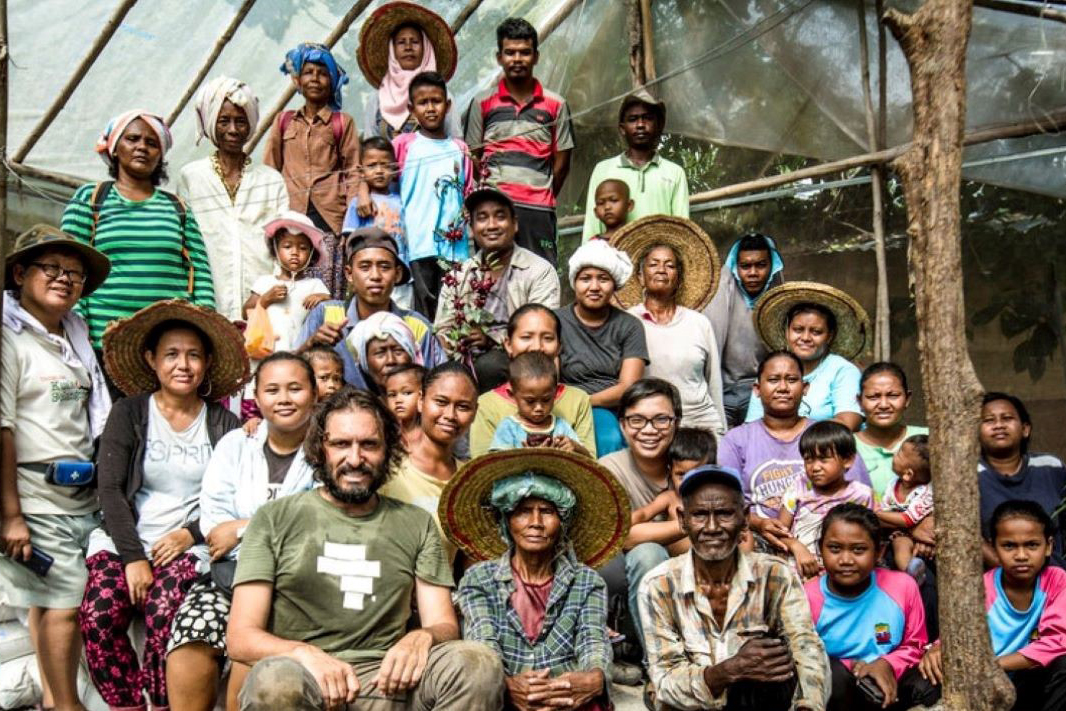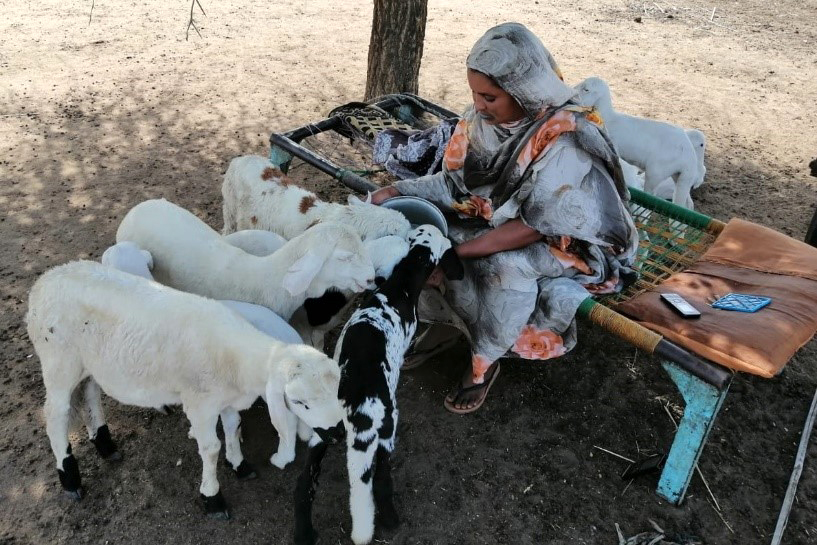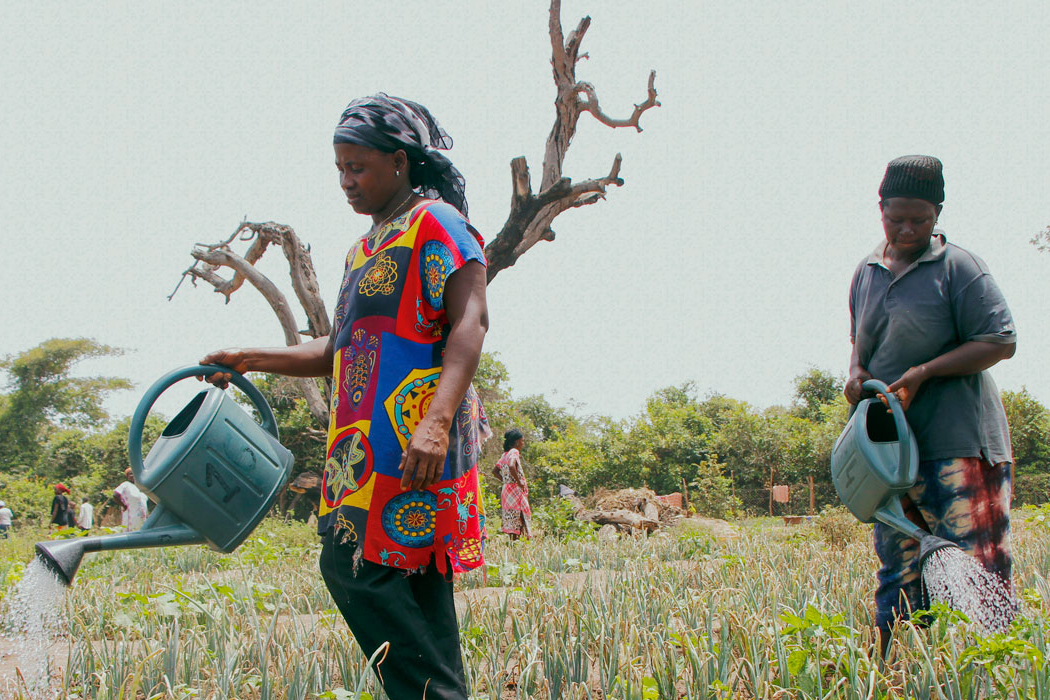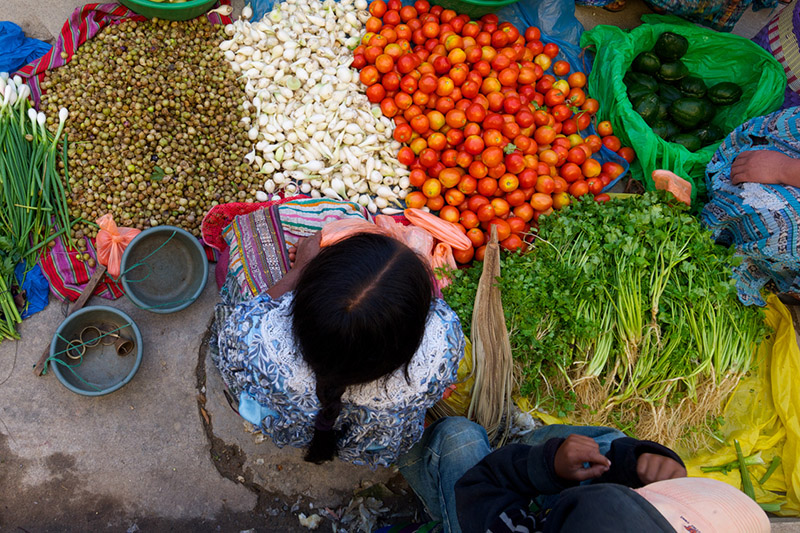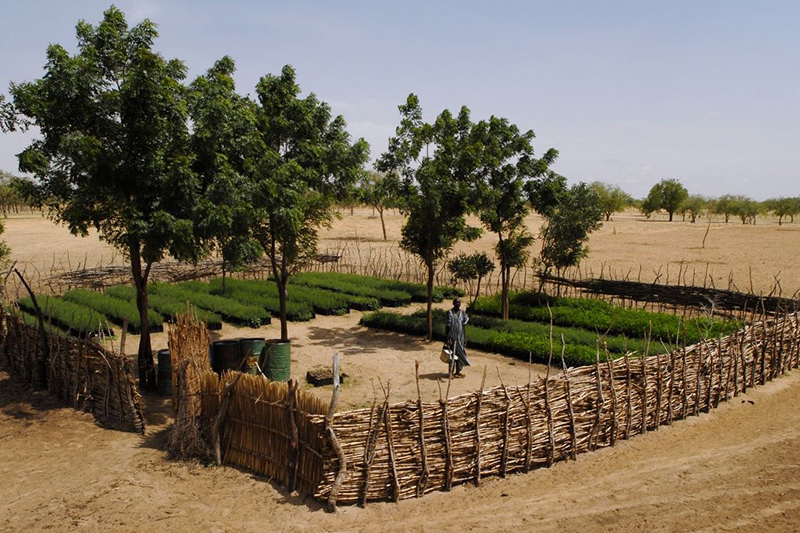On top of the challenges that all smallholders face, farmers with disabilities also experience negative attitudes, stigma, discrimination, and a lack of accessibility. Climate change and other external shocks, such as the COVID-19 pandemic, tend to exacerbate these existing inequalities. IFAD is supporting farmers with disabilities - like Abu Koroma, Leonard Murani and Mariama Jalloh - to make a living from agriculture and build their resilience. This allows them to feed their families and sell the surplus. Watch the video to find out more.
IFAD
The food we eat and how we produce it is evolving. IFAD explains what our plates might look like in the future and explore how the world’s small-scale farmers are revolutionizing what we eat.
How are agri-small and medium-sized enterprises (SMEs) affected by the current onslaught of global crises? What is IFAD doing to support agri-SMEs during this volatile time?
Indigenous peoples use language in a powerful way to describe Mother Nature. IFAD presents five unique words indigenous peoples use to describe the natural environment.
Farmers and pastoralists in the small village of Yarwa, in Sudan’s semi-arid region, face several threats to their way of life. Climate change and environmental degradation are damaging lands, destroying forests, and increasing the risk of drought, while the growth of commercial mechanized agribusiness is reducing their access to land. For a long time, small-scale farmers and pastoralists didn’t have any way of accessing finance to grow their businesses. And women, especially, were held back by societal norms, which gave them little say in financial decisions. Today, however, the 13 members of the Alwifaq women’s savings and credit group are charting a way to a better, more resilient future for their community.
Remittances continue to matter more than ever, particularly in rural areas where they count the most and provide opportunities towards rural transformation. IFAD presents 12 reasons why.
Brazil’s north-eastern semi-arid region, known as sertão, is a land rich in culture and enchanting landscapes, but the harsh climate and lack of water make it difficult to earn a living here. Over recent decades, modern ingenuity has combined with traditional mutual aid systems to help communities. Key to any project’s success is the focus on nature-based solutions and working with local people. IFAD is an international financial institution and a specialized agency of the United Nations dedicated to eradicating poverty and hunger in rural areas of developing countries.
Don Lolo has been growing coffee on the slopes of El Playón in Honduras for over fifty years. Now, thanks to from IFAD’s Rural Poor Stimulus Facility, he is using an online banking app to apply for loans, manage savings, and reach new buyers. Rural savings banks are a lifeline for small rural communities in Honduras, allowing small-scale farmers like Don Lolo to save and plan for the future. Sixty-six banks have benefited from the programme, which launched the app and provided bank members with tablets and training.
Fifteen years ago, Africa’s leaders had a vision that would change the future of their continent. They imagined a thin but powerful green line strung between the Indian Ocean and the Atlantic: a strip of trees 8,000 km long and 15 km wide. It would trace the Sahel, the dryland region sandwiched between the Sahara desert to the north and the savannah to the south. Today, this vision has been refined. The Great Green Wall (GGW) is now envisioned. IFAD is among the guardians of this vision.
As the war in Ukraine pushes food, fuel and fertilizer prices toward record levels putting food security in many of the world’s poorest countries at risk, IFAD launches a Crisis Response Initiative to ensure that small-scale farmers in high-risk countries can produce food over the next few months to feed their families and communities while reducing the threat to future harvests. IFAD is calling on its Member States to contribute to the significant resources required to cover all 22 countries listed in the Initiative as priorities based on measures of need.
Irrigated crops, livestock, fisheries, aquaculture and forestry, account for roughly 70 per cent of total freshwater withdrawals globally. IFAD invests in multiple water use strategies in rural areas.
For another year, millions of small-scale farmers have been bearing the brunt of Climate Change and COVID19. Despite the challenges, they have been using everything from boats to goats to build resilience. IFAD was there to support them every step of the way.
Many people involved in agriculture do not consume enough food or benefit from a healthy diet. Although 63 per cent of low-income people worldwide work in agriculture – the overwhelming majority of them on small farms – many are at risk of food and nutrition insecurity. Farmers often must make difficult choices between what they consume and what they sell. Many of them sell most of what they produce, with little or nothing left for household consumption; others need to purchase most of their food at the market because they grow only one or a few crops.
IFAD answers why and how the world’s poorest rural dwellers should be helped to adapt to the changing climate.
Even as climate change takes hold, IFAD believes it’s possible to transform rural economies and food systems to make them more resilient, sustainable and inclusive, while also making them more productive and investment in small-scale farmers is key.

